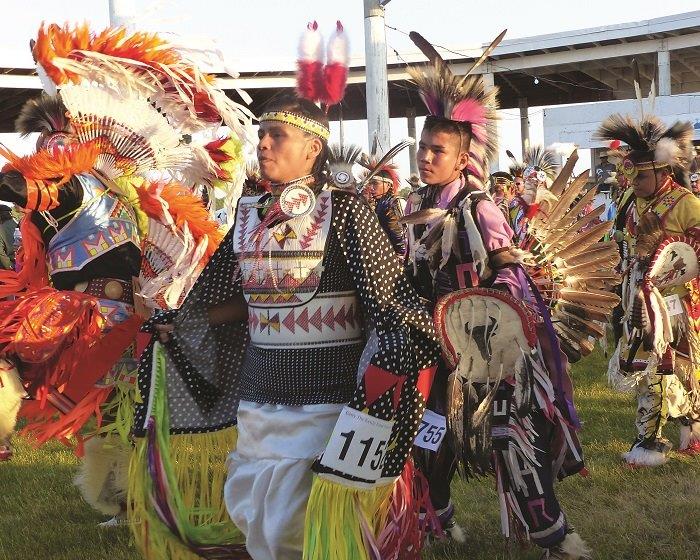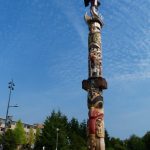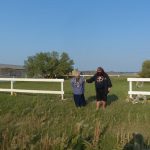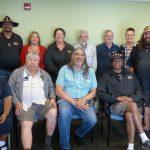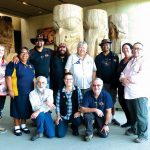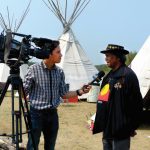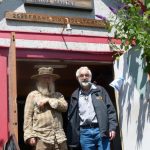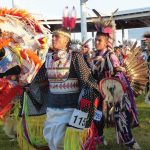Colleen Geyer, General Secretary of the Uniting Church in Australia travelled across Canada last year with a group of seven Uniting Aboriginal and Islander Christian Congress (Congress) leaders, as part of the Moderator of the United Church of Canada (UCC), Rev Jordan Cantwell’s, Reconciliation Dialogue.
The purpose of the trip was to take a look at the way another church had worked through sovereignty and treaty discussions with its First Peoples, to better inform the conversation the Uniting Church is currently engaged in. She shared her experience with Revive.
Our journey began in Vancouver where we met students at the UCC’s Native Ministries Consortium Summer School and visited the Vancouver School of Theology.
We heard many survivor stories from Canada’s infamous residential schools. The similarities with our own Stolen Generations took my breath away. Congress members were also struck by it.
“I was surprised at the similarity, people coming over there and taking over, kids stolen and put into homes,” said Rev Garry Dronfield, Congress Deputy Chairperson.
“It was interesting meeting the Aboriginal people from Canada and seeing that they’re still holding on to a lot of their culture. I don’t think we’re as advanced as they are over there.”
We all also stood in awe at the Reconciliation Totem Pole in the grounds of the University of British Columbia.
UCC Elder, Ray Jones, a hereditary chief of the Gitxsan Nation and himself a residential school survivor, read the pole’s images to us which included children from residential schools, even the schools themselves. The system began in the 1800s and the last residential school only closed in 1996. Children were each given a number as they entered the schools.
Later on our trip, UCC Elder, Lorna Standingready took us to an unmarked graveyard near the site of a former residential school. Along the way, we learnt about the treaties of Canada, their intent and what they do and do not offer to First Nations people. Sadly, the existence of treaties in Canada hasn’t brought certainty for First Nations people.
“There are lots of treaties in lots of different places, but the problem is the government always squeezes out of its treaty obligations if it doesn’t want to follow them,” said Garry Dronfield. “Something the UCC seems to do better than us is to line up their policies with the United Nations (UN) Declaration on the Rights of Indigenous Peoples. Our church and our country would benefit from that kind of alignment.”
There was more common ground than we all expected, and often not in a good way. Common ground so similar at times that the silence was all there could be.
How long is reconciliation expected to take? And how will we recognise when it has happened?
Our Congress Adnyamathanha leader, Rev Denise Champion, believes it will be when her children and grandchildren can sit down with my children and grandchildren and they will be able to speak to each other in their own language, and be understood.
Dr Shauneen Peet, a member of the Little Pine First Nations who taught at the University of Regina, reminded us about white privilege. First Nations people “are not required to perform our trauma over and over again so that other people can learn,” she said.
I think we saw some possibilities for our Uniting Church and our covenant with First Peoples through the Congress as a result of this trip. Important possibilities. A centre for First Peoples spirituality and theology, a move to more clarity about where Congress sits within the structure of the Uniting Church, the consideration of the UN Declaration on the Rights of Indigenous People in framing our responses and actions and much more.
It was a precious time for me to build relationships with Congress leaders, to hear their stories, their perspectives and truths, without distraction. We’ve spoken and written many words on our own process to sovereignty and treaty in Australia. Words are important. They give us a foundation. But they can’t be all there is, and we need to commit to action.
I realise though that my need for action is just that, mine. In our country and in our church, we have a bad habit of imposing solutions. So I look forward to our discernment and action in the months ahead on these important issues, and to further input as we travel the reconciliation path together.
We will return the hospitality of our UCC friends when we host a delegation of theirs this month.
Colleen Geyer
